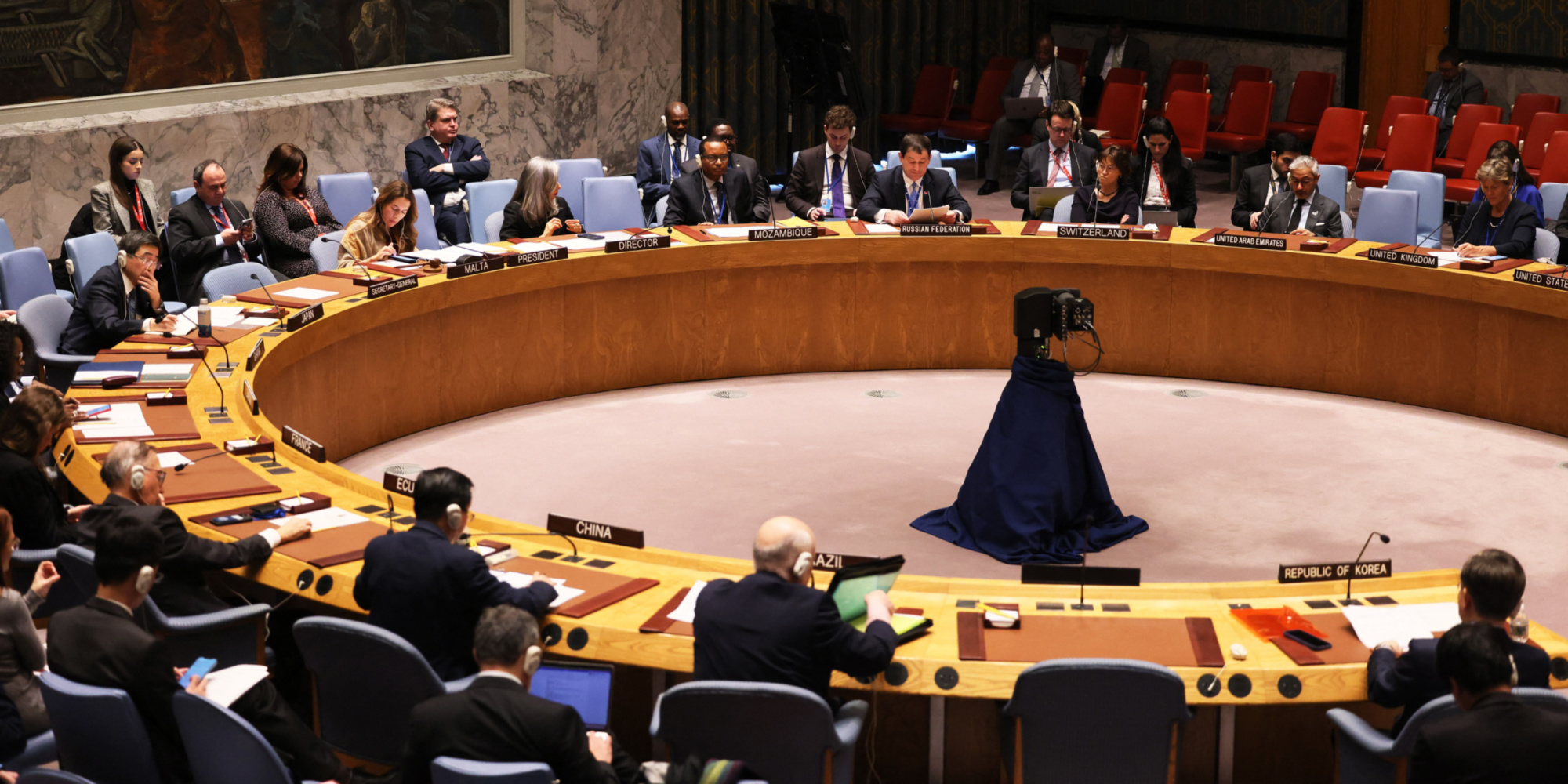Interview by Simon Bourtembourg, edited by Gauthier Delomez with AFP 19:30 pm, April 01, 2023
Russia succeeds Mozambique as head of the presidency of the UN Security Council on April 1, in a context still marked by the Russian invasion of Ukraine. According to geopolitical scientist Pascal Boniface interviewed by Europe 1, this Russian presidency was inevitable and remains more symbolic than anything else."A slap in the face of the international community" for Ukraine and "an April Fool's joke" for Westerners: Russia took over the presidency of the UN Security Council on Saturday, and this for the entire month of April. These criticisms from Kiev, however, did not prevent Moscow from assuring that its delegation to the UN this month, to succeed Mozambique, would be led by the head of Russian diplomacy, Sergei Lavrov. In any case, according to geopolitical scientist Pascal Boniface interviewed by Europe 1, this Russian presidency was inevitable and stronger in symbol than anything else.
>> READ ALSO – Ukraine: what is the Holodomor, recognized as "genocide" by the National Assembly?
"It's really very symbolic, it doesn't give Russia much power," says the founder and director of the Institute of International and Strategic Relations, which supports the prerogatives given to the country led by Vladimir Putin: "Russia chairs the session, it is she who turns the word, but that does not give it additional powers."
"The United States presided during the war in Iraq"
"And nothing more normal," he continues at the microphone of Europe 1. "The United States also presided over the Security Council when it was at war with Iraq," he recalls, stressing that "once again, it is the settlement, with countries that do not agree in the Security Council." "This rotating presidency is in the rules, and if someone had wanted to change them, China and Russia would have vetoed them," points out the geopolitical scientist, who puts forward a "limit of the UN: the permanent members have a right of veto and we can not change a regulation without their agreement".

